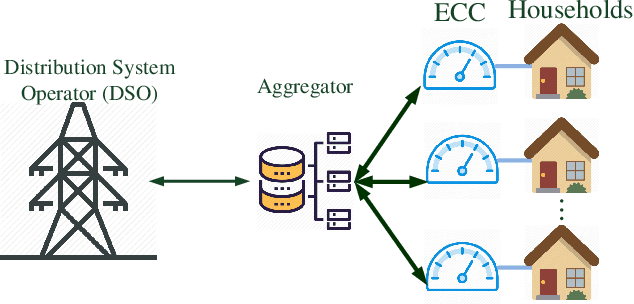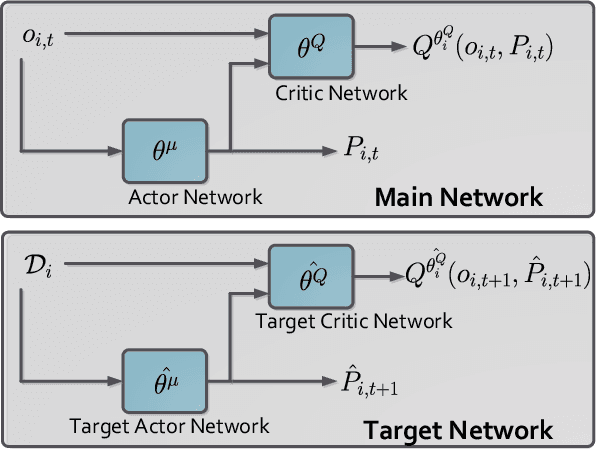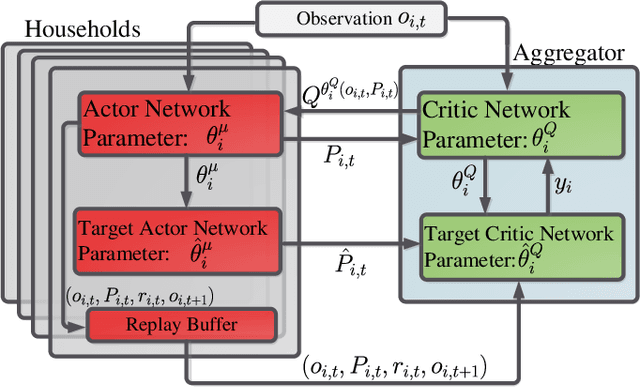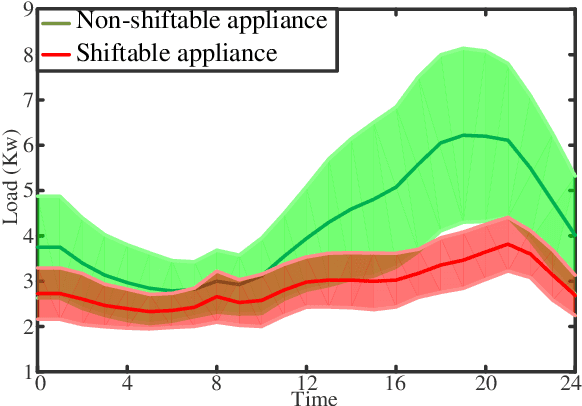Hwei-Ming Chung
DACOM: Learning Delay-Aware Communication for Multi-Agent Reinforcement Learning
Dec 03, 2022Abstract:Communication is supposed to improve multi-agent collaboration and overall performance in cooperative Multi-agent reinforcement learning (MARL). However, such improvements are prevalently limited in practice since most existing communication schemes ignore communication overheads (e.g., communication delays). In this paper, we demonstrate that ignoring communication delays has detrimental effects on collaborations, especially in delay-sensitive tasks such as autonomous driving. To mitigate this impact, we design a delay-aware multi-agent communication model (DACOM) to adapt communication to delays. Specifically, DACOM introduces a component, TimeNet, that is responsible for adjusting the waiting time of an agent to receive messages from other agents such that the uncertainty associated with delay can be addressed. Our experiments reveal that DACOM has a non-negligible performance improvement over other mechanisms by making a better trade-off between the benefits of communication and the costs of waiting for messages.
PP-MARL: Efficient Privacy-Preserving MARL for Cooperative Intelligence in Communication
Apr 26, 2022



Abstract:Artificial intelligence (AI) has been introduced in communication networks and services to improve efficiency via self-optimization. Cooperative intelligence (CI), also known as collective intelligence and collaborative intelligence, is expected to become an integral element in next-generation networks because it can aggregate the capabilities and intelligence of multiple devices. However, privacy issues may intimidate, obstruct, and hinder the deployment of CI in practice because collaboration heavily relies on data and information sharing. Additional practical constraints in communication (e.g., limited bandwidth) further limit the performance of CI. To overcome these challenges, we propose PP-MARL, an efficient privacy-preserving learning scheme based on multi-agent reinforcement learning (MARL). We apply and evaluate our scheme in two communication-related use cases: mobility management in drone-assisted communication and network control with edge intelligence. Simulation results reveal that the proposed scheme can achieve efficient and reliable collaboration with 1.1-6 times better privacy protection and lower overheads (e.g., 84-91% reduction in bandwidth) than state-of-the-art approaches.
Distributed Deep Reinforcement Learning for Intelligent Load Scheduling in Residential Smart Grids
Jun 29, 2020



Abstract:The power consumption of households has been constantly growing over the years. To cope with this growth, intelligent management of the consumption profile of the households is necessary, such that the households can save the electricity bills, and the stress to the power grid during peak hours can be reduced. However, implementing such a method is challenging due to the existence of randomness in the electricity price and the consumption of the appliances. To address this challenge, we employ a model-free method for the households which works with limited information about the uncertain factors. More specifically, the interactions between households and the power grid can be modeled as a non-cooperative stochastic game, where the electricity price is viewed as a stochastic variable. To search for the Nash equilibrium (NE) of the game, we adopt a method based on distributed deep reinforcement learning. Also, the proposed method can preserve the privacy of the households. We then utilize real-world data from Pecan Street Inc., which contains the power consumption profile of more than 1; 000 households, to evaluate the performance of the proposed method. In average, the results reveal that we can achieve around 12% reduction on peak-to-average ratio (PAR) and 11% reduction on load variance. With this approach, the operation cost of the power grid and the electricity cost of the households can be reduced.
 Add to Chrome
Add to Chrome Add to Firefox
Add to Firefox Add to Edge
Add to Edge